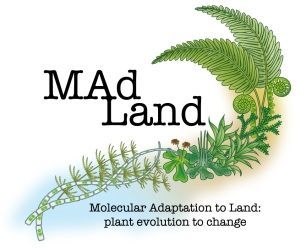MAdLandDB: A Comprehensive Protein Database for Plant and Algal Genomes
Exploring MAdLandDB: Protein Sequences across diverse Organisms
Welcome to the world of MAdLandDB – your go-to protein database for a comprehensive collection of fully sequenced plant and algal genomes. Developed and actively maintained by the Rensing lab, MAdLandDB stands out for its emphasis on non-seed plants and streptophyte algae. In this blog post, we'll explore the key features and recent updates of this resource.
Introduction
MAdLandDB is a protein database comprising a comprehensive collection of fully sequenced plant and algal genomes, with a particular emphasis on non-seed plants and streptophyte algae. This database contains over 21 million sequences, representing a diverse group of more than 600 species. Its scope extends to various organisms, including fungi, animals, the SAR group, bacteria, and archaea, fostering a platform for comprehensive comparative analysis. The database's species abbreviation system, using a 5-letter code, simplifies species identification. For instance, CHABR – Chara braunii, is an example of how this nomenclature works. It contains non-redundant, reliable protein sequences utilizing BLASTp and Diamond search functionalities on the Galaxy interface for comparative and evolutionary questions in plant biology.
What Sets MAdLandDB Apart?
Non-redundancy: One of the database's primary strengths lies in its non-redundant nature. Sequence data is carefully curated, ensuring that you access only the most reliable genomic information.
Genome Project Origins: MAdLandDB takes pride in sourcing its sequences predominantly from genome projects. This approach enhances the reliability of the data and provides a solid foundation for various comparative analyses.
Comprehensive Information: The 5-letter code in the sequence header along with the gene ID allows for essential, short information and also features the source of gene encoding (plastome or transcriptome-based, etc.). The source/metadata for all genomes is available via the published papers.
MAdLandDB releases
There have been several releases since MAdLandDB was hosted on Galaxy.
| DATE | #RELEASE |
|---|---|
| 22 December 2022 | 1st release |
| 03 Febuary 2023 | 2nd release |
| 23 August 2023 | 3rd release |
| 18 January 2024 | 4th release |
Confused on where to start?
Let this tutorial be your starting point, providing you with a straightforward path to follow.
Want to know more about MAdLand, please visit MAdLand
Thanks Note:
The database is being maintained in the framework of MAdLand (http://madland.science, DFG priority program 2237). The Rensing lab is grateful for funding from the DFG (RE 1697/15–1, 20–1).

